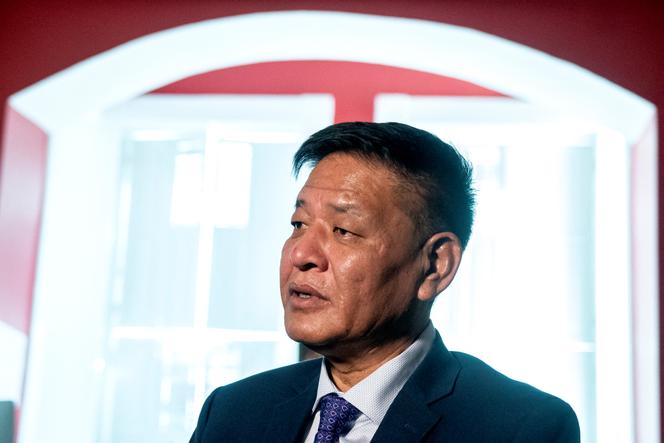


He is the highest representative of the Tibetan diaspora: Penpa Tsering, sikyong (chairman) of the Tibetan government-in-exile, is the political voice of Tibet from "outside" – that of the refugees, the dispersed, all those who, after 1959 and the brutal Chinese repression of the Lhasa uprising, fled their country after the departure of the Dalai Lama. Since then, the government-in-exile's seat has been based in Dharamsala, a small town at the foot of the Indian Himalayas.
In Paris, where he just made his first visit to France since his election in 2021 as head of the Kashag, the government, the president philosophized on how to combine the demands of exercising power with the necessities of compassion toward all beings, the supreme injunction of Buddhism. "The parliament in exile becomes the place for a kind of meditation retreat," he said. "I am not a deeply religious person. I do not have the knowledge of a monk! But I am guided by the wisdom of His Holiness the Dalai Lama. For instance, when I am in session, when the members are speaking badly to each other, I remain calm, thanks to the practice of meditation."
57 years old, with a fearless face, sometimes somber but often brightened by lively smiles, sikyong la, "Mr. Chairman" in Tibetan, might be the highest representative of the 130,000 Tibetans in exile scattered across five continents – 60% in India, Nepal and Bhutan, and 40% in the rest of the world – but his powers are limited. The decisions he makes can only concern the diaspora. In India, the authorities "welcome" Tibetans and their political bodies while restricting the Kashag's powers to strictly community-based areas. So much so that the term "government-in-exile," deemed too provocative by New Delhi with regards to China, has been banished in favor of a more neutral expression: "Central Tibetan Administration."
However, the exercise of power remains complex, even frustrating, especially since the Dalai Lama decided in 2011 to renounce his status as head of state, simply retaining his role as the religious leader of the Tibetans. It went against a tradition that had, until then, confused the temporal with the spiritual, as in the Vatican. From then on, the elected executive and parliamentary bodies of Tibetans in exile – government and Parliament – were definitively propelled into the complicated workings of democracy, with all the divisions, resentments and misunderstandings that it entails.
Tsering's election in 2021 did not go smoothly: His predecessor, Lobsang Sangay, a Harvard-educated Tibetan politician from the diaspora in the United States, whose "arrogance" his opponents often reviled, did everything in his power to sabotage his rival. Without success: In the end, the latter won, but at the cost of serious internal divisions. "We are now a broken democracy," said the sikyong.
You have 50% of this article left to read. The rest is for subscribers only.
